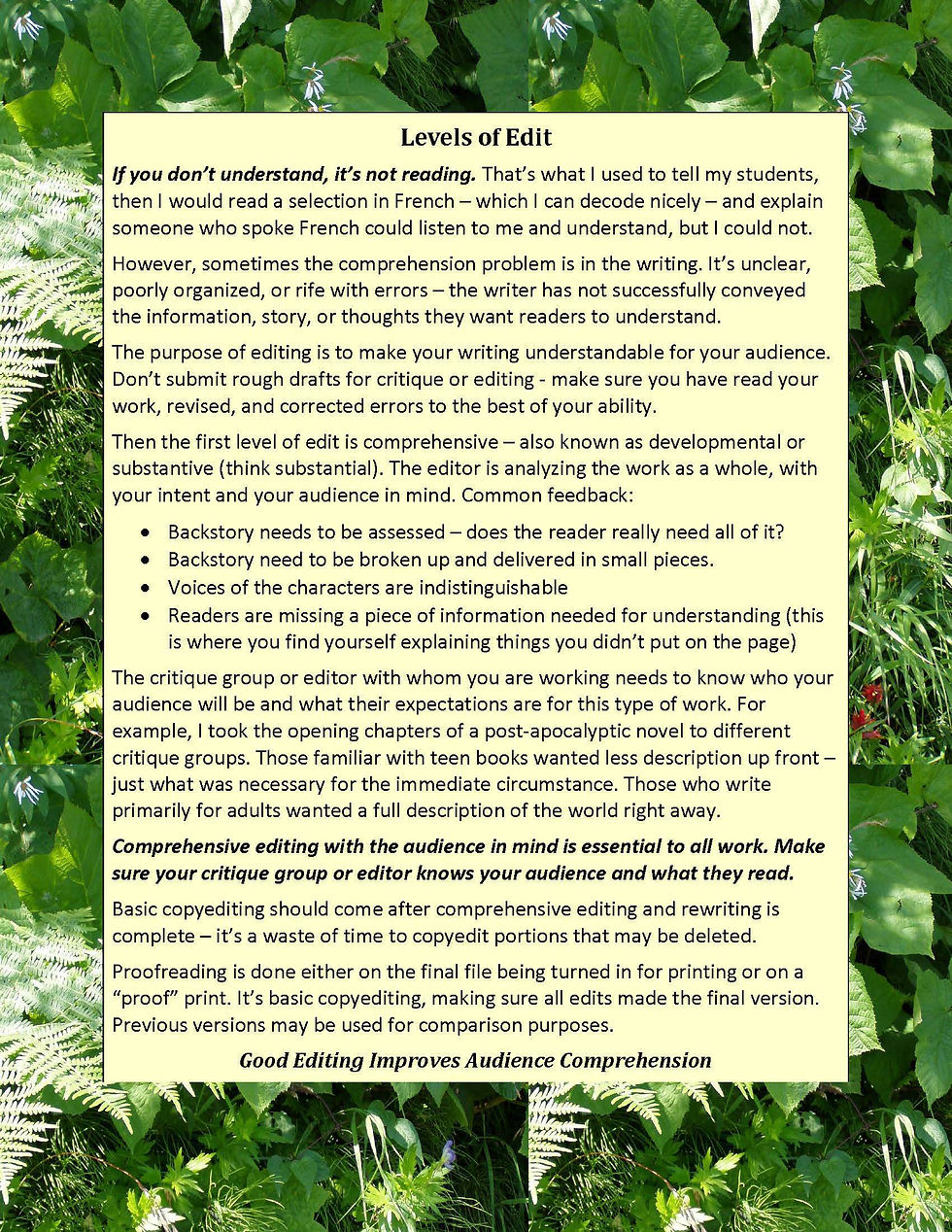- Sheri McGuinn

- Oct 12, 2017
- 2 min read
Updated: Dec 14, 2020
You’re writing a book. Are you approaching this as a profession or is it a hobby?
Given how difficult it is to be successful, it might be healthier to approach writing and self-publishing as a hobby, something you do for fun. However, are you approaching it seriously enough you don’t harm others?
Self-publishing is gaining respect because of writers who are approaching writing and publishing professionally. They make sure their books are edited. They pay attention to genre and industry standards for formatting. The hobbyist who publishes a rough draft rife with errors and formatted poorly hurts every serious self-publisher, not only by putting a dent in the self-publishing image, but by making it that much harder for a reader to find the good books.
You can approach writing and self-publishing as a hobby and still produce a well-written, professionally-produced book. It doesn’t have to cost a lot of money.
A good critique group can help you polish the writing. Your library, book clubs, and English teachers at a local college may be able to suggest good editors and proof-readers. When it comes to formatting, you can buy templates or do it yourself using your word processor—if you know how to use styles, show all formatting marks, paragraphing, and other tools. If you don’t, head back to the library and local college and ask for a word processing guru. In any case, make sure you have copies of traditionally published books in the same genre to use as examples of how it should look. Pay attention to details.
This takes more time and effort than throwing up a rough draft, but friends who buy it may actually read it, and you won’t be hurting other writers.


